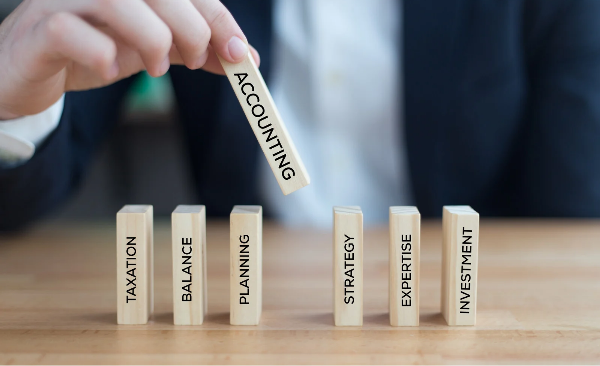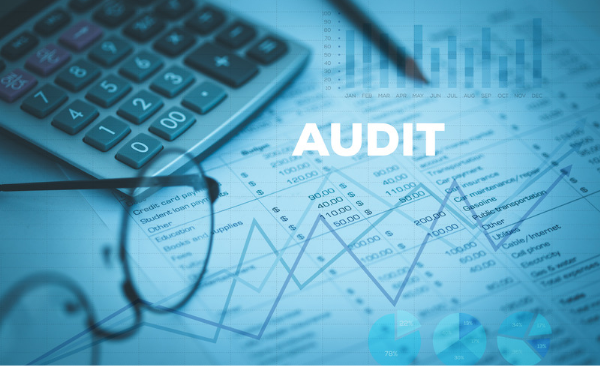
In the world of finance and business management, bookkeeping and accounting are two crucial practices that ensure a company’s financial health. Though the terms are often used interchangeably, they refer to distinct processes. Understanding the differences between bookkeeping and accounting can help businesses effectively manage their finances and maintain compliance with regulatory standards.
1. Definition and Scope

Bookkeeping refers to the process of recording all financial transactions made by a business. It involves keeping accurate, systematic, and up-to-date records of all money that flows in and out of the company. The focus is primarily on the day-to-day financial activities such as recording sales, purchases, payments, and receipts. In essence, bookkeeping provides the groundwork for the financial data that accountants use for analysis.
Accounting, on the other hand, is the process of interpreting, classifying, analyzing, reporting, and summarizing financial data. Accountants build on the information provided by bookkeepers to create financial reports, analyze financial trends, provide tax advice, and offer strategic recommendations to management. Accounting goes beyond simply recording transactions; it involves assessing the financial health of the business and making decisions to improve profitability.
2. Tasks and Responsibilities

Bookkeeping tasks are centered around recording and classifying financial transactions. Bookkeepers manage accounts payable and receivable, ensure accuracy in financial ledgers, and maintain the general ledger, which is the central repository for a company’s financial transactions. They ensure that all data is recorded accurately and in a timely manner, making it easy for accountants to access and interpret when needed. Bookkeepers are also responsible for bank reconciliations, ensuring that recorded transactions match the bank statements.
Accounting tasks are more analytical and involve summarizing and interpreting the financial data provided by bookkeepers. Accountants are responsible for preparing financial statements like balance sheets, income statements, and cash flow statements. They also analyze costs, manage tax filings, provide financial forecasts, and advise businesses on financial strategy and compliance. Accountants perform financial audits, monitor budgets, and develop financial controls to help the business meet its goals.
3. Skills and Qualifications

Bookkeeping generally requires less formal education and certification compared to accounting. A bookkeeper needs to be highly detail-oriented, organized, and familiar with accounting software. While formal qualifications are not always required, many bookkeepers pursue certifications like the Certified Bookkeeper (CB) designation to enhance their credibility. Practical experience with financial software such as QuickBooks, Xero, and Microsoft Excel is often essential for bookkeepers.
Accounting, on the other hand, requires a higher level of expertise and formal education. Most accountants have at least a bachelor’s degree in accounting or finance, and many pursue additional certifications like the Certified Public Accountant (CPA) or Chartered Accountant (CA) designation. Accountants must be proficient in interpreting complex financial information, developing strategies for financial growth, and ensuring compliance with tax laws and regulations. Analytical and problem-solving skills are critical for accountants, as they often need to identify financial risks and opportunities for improvement.
4. Objective

The primary objective of bookkeeping is to maintain a complete and accurate record of all financial transactions. The goal is to ensure that all financial data is up-to-date and can be easily accessed for reference during audits or when preparing financial statements. By keeping the records consistent and correct, bookkeepers provide a solid foundation for accounting processes.
The objective of accounting, however, is to use the data recorded by bookkeepers to provide insights into a company’s financial health. Accounting focuses on summarizing, analyzing, and interpreting the financial information to guide decision-making and long-term financial planning. The main aim is to provide actionable insights that can help businesses optimize their operations, reduce costs, and increase profitability.
5. Tools and Software

Bookkeeping tasks often involve using basic accounting software to record transactions and manage day-to-day financial activities. Popular bookkeeping software includes QuickBooks, Xero, FreshBooks, and Wave. These tools are designed to simplify the recording and organization of financial data, making it easy for bookkeepers to maintain accurate ledgers and generate reports.
Accounting, on the other hand, typically requires more advanced financial tools. Accountants use the same bookkeeping software but often require additional tools for financial analysis, forecasting, and reporting. Accounting software like SAP, Oracle Financials, and Microsoft Dynamics offer a wider range of features for accountants to create detailed financial reports, analyze trends, and conduct audits.
6. Regulatory Compliance and Financial Reporting

Bookkeeping is primarily focused on tracking daily transactions and ensuring that financial records are accurate. While bookkeepers must be familiar with basic tax laws and financial regulations, they do not usually engage in tasks related to compliance beyond ensuring that the records are in line with legal requirements.
Accounting, however, plays a critical role in ensuring regulatory compliance. Accountants are responsible for preparing tax returns, ensuring adherence to financial regulations, and providing guidance on tax planning. They work closely with regulatory bodies to ensure that the business meets all its legal obligations, including submitting accurate financial statements and maintaining proper tax documentation.
Conclusion
In summary, while bookkeeping and accounting are closely related, they serve different purposes in managing a business’s finances. Bookkeeping is primarily concerned with recording daily financial transactions, while accounting involves analyzing, interpreting, and using that data to guide decision-making. Both processes are essential for maintaining financial health and ensuring that a business remains compliant with legal and regulatory requirements.
Understanding the distinctions between bookkeeping and accounting is vital for any business owner, as it helps in determining the specific financial services needed at various stages of business growth. While bookkeepers focus on the details of record-keeping, accountants provide the strategic insights that help businesses thrive in a competitive marketplace.